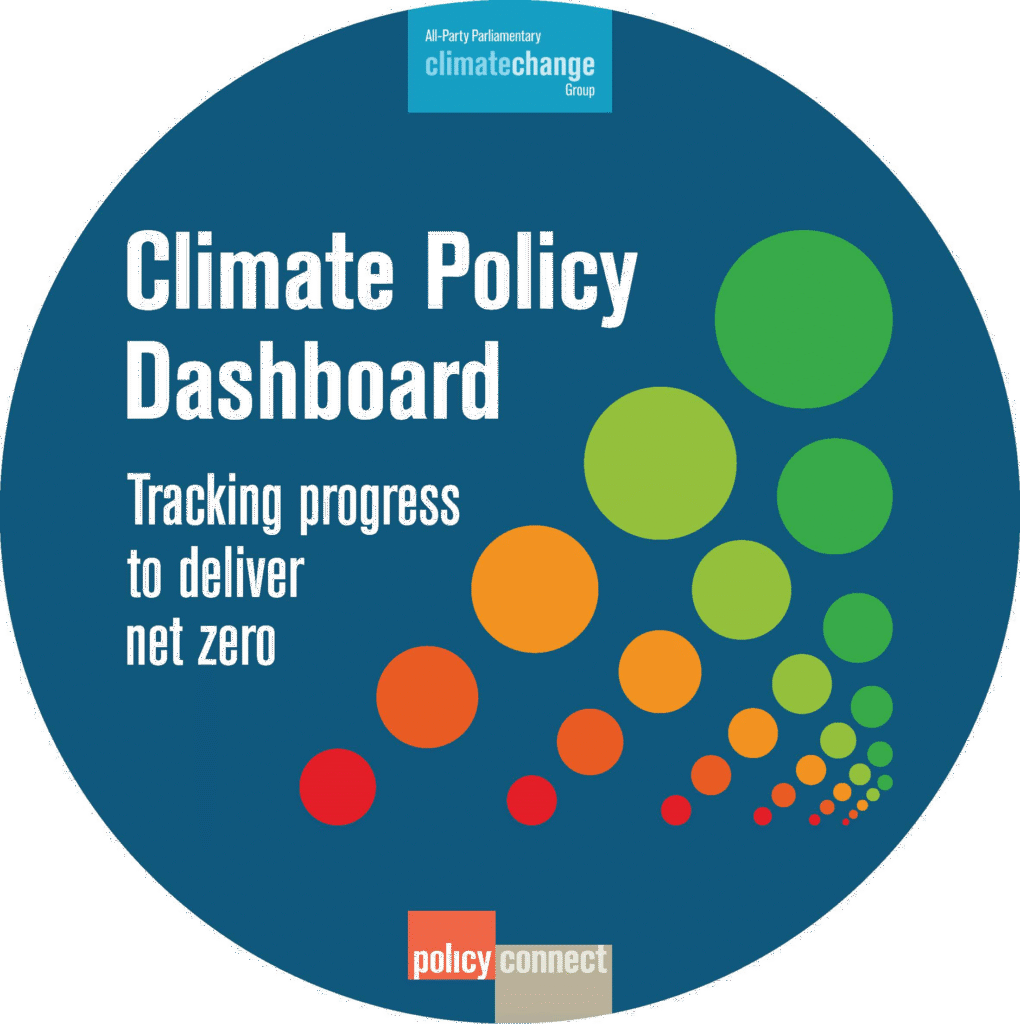The latest Climate Policy Dashboard update in response to the Net Zero Strategy and Heat and Buildings Strategy shows increased rankings for the power, heat, and waste sectors.
The Climate Policy Dashboard has been updated across key sectors in response to the much anticipated and much awaited Net Zero Strategy and Heat and Buildings Strategy. These strategies are broad, comprehensive and ambitious, setting out the government’s plans for domestic emissions reductions.
The Government must now focus on delivering credible and actionable policies in line with these strategies to get us on track to reach net zero.
In meeting key policy commitments recommended by the Climate Change Committee (CCC), the power, heat, and waste sectors have increased their ranking scores.
“The Climate Policy Dashboard has seen welcome increases in sector rankings in the power, buildings, and waste sectors in response to the Net Zero Strategy and the Heat and Buildings Strategy. The power sector has seen the greatest increase from 6/10 to 8/10, led by a commitment to fully decarbonise electricity by 2035. There remain however many policy gaps across all sectors, most noticeably in agriculture and land use. While the strategies are full of promises, the real focus now must be on delivery. The Dashboard will continue to monitor the government’s progress against the Climate Change Committee’s policy recommendations as climate ambition turns into climate action.” – Nazza Ahmed, Policy Connect
The Power Sector has increased from 6/10 to 8/10
The Government has committed that by 2035 the UK will be powered entirely by clean electricity. This was one of the Dashboard’s key actions for the Government to commit to. There must now be a focus on delivery and a plan set to achieve this commitment.
It also welcome that the Net Zero Strategy increased the commitment on carbon capture and storage deployment from the Ten Point Plan’s 10 MtCO2 captured and stored annually to 20-30 MtCO2/year by 2030, with the CCC recommending 22 MtCO2/year by the same date.
The Buildings Sector has increased from 3/10 to 5/10
The Buildings Sector receives the most updates as many of the policy recommendations were reliant on the Heat and Buildings Strategy. The Government is clear, in line with the CCC, that the electrification of heating through the deployment of heat pumps will form a major part of how buildings are heated in the future. To meet this, the Government notes that the market for heat pumps needs to grow to approximately to 600,000 installations per year by 2028. The announcement of a Fairness and Affordability consultation is also a positive step to help rebalance electricity and gas prices.
The Waste Sector has increased from 2/10 to 3/10
While the Environment Bill and a range of consultations will set the path for policy action in the Waste Sector, the Net Zero Strategy did state that the Government will explore options to achieve the near-elimination of biodegradable municipal waste going to landfill by 2028. This is a welcome development; however, the CCC recommended this be met by 2025 and cover commercial and industrial waste. There is also a lack of policies in curbing the rise of emissions from energy from waste, which keeps the sector ranking low.
The Transport Sector remains on 5/10
The Transport Sector missed out on an increased ranking from 5/10 to 6/10. This would have occurred had the Chancellor in his Budget met the policy recommendation to balance prices between aviation and surface transport and encourage low-carbon alternatives for journeys where one exists. Instead, the announcement to cut air passenger duty for domestic flights means this recommendation has not been met.
The Agriculture and Land Use Sector remains on 5/10
The CCC notes that there needs to be a decarbonisation strategy to reduce emissions in agriculture and land use, an area where it is clear that more needs to be done.




